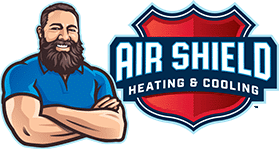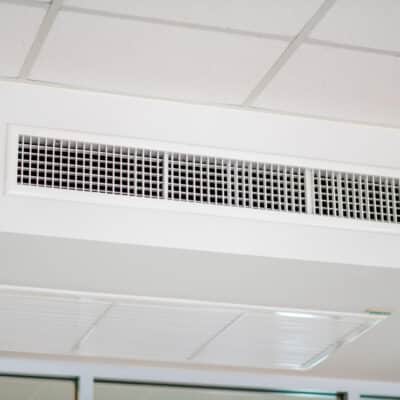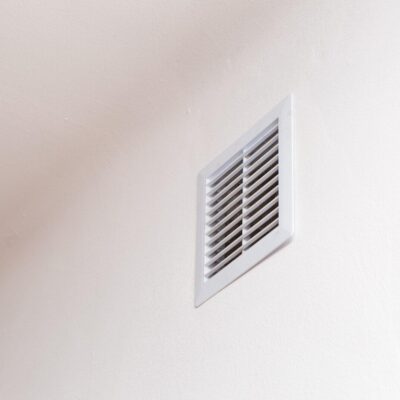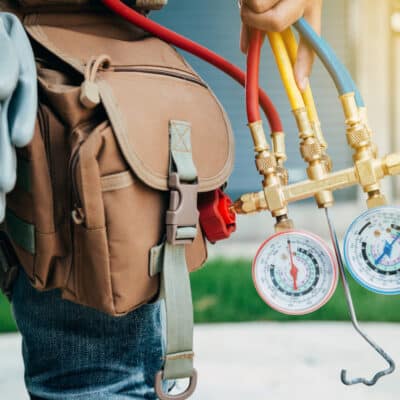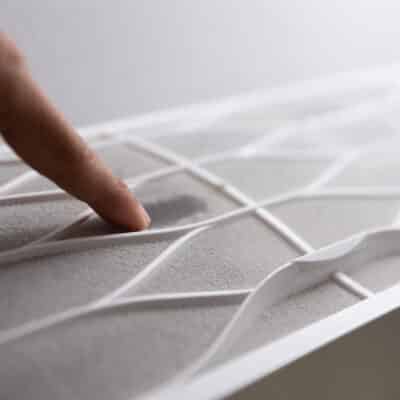
According to Global Market Insights, the residential HVAC market in the United States is expected to grow at a CAGR of 7.5% from 2025 to 2034. This shows a rise in demand for sustainable and energy-efficient solutions.
HVAC is an acronym for Heating, Ventilation, and Air Conditioning, also called climate control. HVAC systems are mainly used to control the climate conditions in a property or home. Various HVAC systems work differently to control the conditions and temperature of a property.
So, how does an HVAC system work? Read this article to learn more.
How Does an HVAC System Work?
The HVAC system works by taking in fresh air from the surroundings and cooling or heating it before circulating it to the indoor spaces. Some of these spaces include:
- Educational institution
- Office
- House
To understand the HVAC system, we must look at its essential parts. Below are some of the critical HVAC components:
Furnace
The furnace is powered by natural gas or oil. However, some electric models use electricity to function.
The furnace has a heat exchanger responsible for warming the air to the required temperature. After the heat exchanger generates heat, the blower distributes the warm air through a duct system in different portions of your home. The furnace is usually kept in your home’s garage, basement, attic, or a unique closet.
Thermostat
This is the component that regulates the heating and cooling of your home. The thermostat activates the entire HVAC system if there is a spike or drop in the set temperature level.
It’s usually installed on walls that are easily accessible since you’re likely to interact with it often. You can always program your thermostat to keep your space at a specific temperature.
Air Conditioner
The primary purpose of air conditioning systems is to cool the air inside a room. An air conditioner uses liquid refrigerant or electricity to facilitate the process of heat exchange. This process involves absorbing heat from the indoor coil, transferring it through line sets, and rejecting hot air from the outdoor coil to the outdoor environment.
Ductwork
The ductwork includes a series of pipes or tubes throughout a home that conduct either cold or hot air from the HVAC system, depending on the thermostat settings.
Vents or registers open in the ceiling, floor, or walls where air is delivered to different rooms. It’s important always to check whether the vents are blocked to avoid interruption of the indoor air quality.
Air Filters
These are placed in the return air ducts and trap allergens, dirt, dust, and other particulates. Air filters protect the HVAC components from damage while improving the indoor air quality.
Humidifier/Dehumidifier
Some HVAC systems have humidifiers that provide added moisture to the dry indoor air during the heating season. On the other hand, dehumidifiers get rid of the excess moisture from the air during cooling seasons.
Orifice/Thermal Expansion Valve
This component controls the flow of liquid refrigerant into the evaporator coil. It regulates the rate of evaporation and absorption of heat by the refrigerant from the indoor air.
Types of HVAC Systems
HVAC systems are available in different types to suit the needs of various buildings. The following are the common types of HVAC systems:
Split System
This consists of a heating and air conditioning unit that works together to control the temperatures of a room. Most split systems have outdoor AC and indoor furnace units, often kept in the garage or basement. These systems use different motors and fans to distribute cool and hot air through the ductwork to other parts of your property.
Split systems are affordable and easy to replace and install. Additionally, they are quite energy-efficient.
Hybrid Systems
Hybrid split systems are ideal for places with not-so-harsh climates. They are similar to divided systems in that they have a separate cooling and heating unit and a ductwork distribution system.
However, hybrid systems have electric or gas hybrid heaters. This way, homeowners can run their heat on electricity or gas, thus making them energy efficient.
Ductless Mini Split System
These systems have cooling and heating units distributed in different rooms of your home. Ductless mini-split systems don’t require vents or ductwork.
They are an excellent option for conserving as much energy as possible or requiring a targeted heating and cooling system in a single room. With ductless systems, you can control the temperature of specific rooms instead of the whole house.
Heat Pumps
These alternative HVAC systems use pumps or pipes to extract heat from the air or ground. Unlike ductless and split systems, heat pumps transfer hot air from one place to another. These HVAC systems come with an expansion valve, allowing you to reverse the direction of heat depending on the season.
There are two significant types of heat pumps, namely, geothermal and air. Geothermal heat pumps get hot air from the ground, while air pumps extract heat. Some heat pumps combine both geothermal and air heat extraction.
Heat pumps are known to be low maintenance and long-lasting. They are also energy-efficient since they don’t use electricity or gas.
Packaged HVAC Systems
These systems comprise single HVAC units with a cooling and heating system in an air handler. Packaged systems are easy to install and are energy-efficient. They produce lower heat levels than average and work best in areas with warm climates.
HVAC Maintenance
You need to maintain your HVAC system to work smoothly and properly. Some HVAC maintenance tips include the following:
- Change or clean your air filters regularly
- Wipe dust and other debris from around the HVAC unit
- Seal your ducts to prevent air loss
- Hire a professional for routine maintenance of your HVAC system
Get Expert HVAC Advice from Air Shield Heating & Cooling Company
How does an HVAC system work? These systems regulate a space’s humidity and temperature, thus maintaining indoor air quality. Understanding the types of HVAC systems helps you make an informed decision that aligns with your long-term benefits and operational goals.
At Air Shield Heating & Cooling, we help you maximize the efficiency of your HVAC systems, saving you money and keeping your home comfortable. We have insured and licensed technicians who provide comprehensive maintenance of your heating and cooling systems to ensure optimal performance.
Contact us today and start saving on your energy costs.

